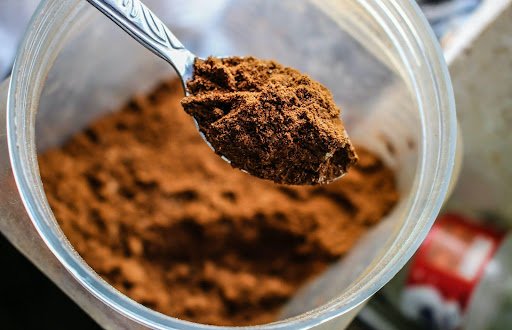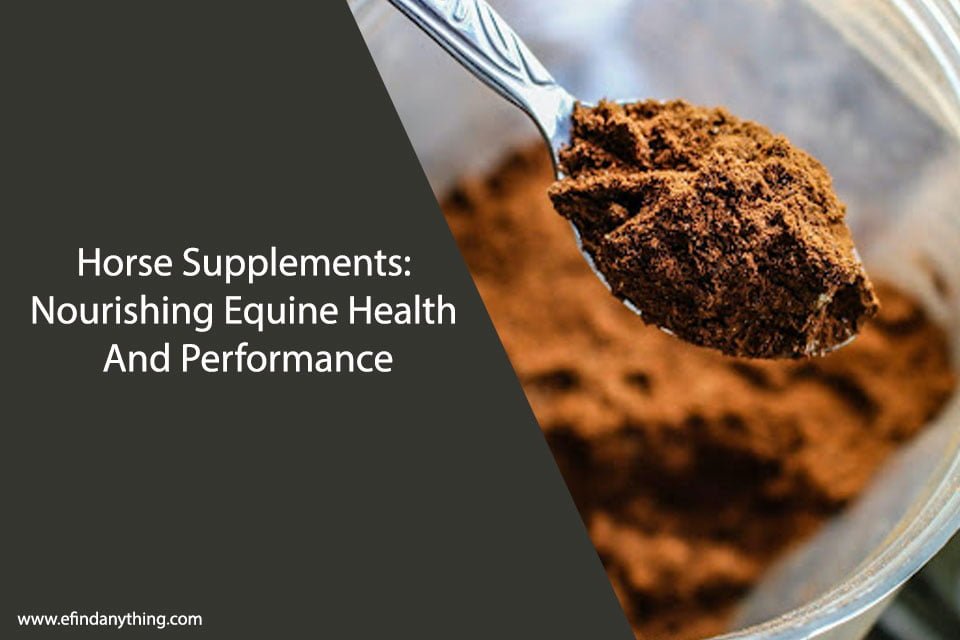
Horse supplements play a crucial role in maintaining and enhancing the health and performance of equines. From supporting joint health to promoting a healthy coat and hoof growth, these supplements provide essential nutrients that are often lacking in a horse’s diet.
Additionally, they can boost the immune system strength and improve overall digestive function. This article explores the various benefits of horse supplements, highlighting their importance in nourishing equine health and optimizing performance.
Table of Contents
Supporting Joint Health in Horses
Supporting joint health in horses is a crucial aspect of promoting their overall well-being and performance. Joint supplements play a significant role in managing arthritis, which is a common issue among equines. Arthritis can cause pain, inflammation, and stiffness in the joints, leading to reduced mobility and decreased athletic ability.
Joint supplements are designed to provide key nutrients that support joint function and reduce inflammation. These supplements often contain ingredients such as glucosamine, chondroitin sulfate, and hyaluronic acid, which have been shown to promote cartilage health and improve joint lubrication.
By incorporating joint supplements into a horse’s diet, owners can help maintain the integrity of their horse’s joints, minimize the risk of developing arthritis-related conditions, and ensure optimal performance. It is important to consult with a veterinarian before starting any supplement regimen to determine the most appropriate options for each individual horse’s needs.
Enhancing Digestive Function
Improving digestive function is a key focus when considering methods to enhance equine well-being and optimize performance. Gut health plays a crucial role in nutrient absorption, as it ensures that the horse’s digestive system functions efficiently.
A healthy gut allows for the breakdown and absorption of essential nutrients from feed, which are necessary for energy production and overall health. Various factors can impact digestive function, including poor diet, stress, and certain medical conditions.
To enhance digestive function in horses, it is important to provide a balanced diet consisting of high-quality forage and appropriate horse supplements. Additionally, managing stress levels through proper handling techniques and environmental modifications can also contribute to improved gut health.
By prioritizing digestive health, horse owners can help their equines achieve optimal nutrient absorption and maintain overall well-being.
Boosting Immune System Strength
Enhancing the strength of the immune system is essential for promoting overall well-being and optimizing nutrient absorption in horses. Boosting energy levels and preventing illness are key goals when it comes to maintaining equine health.
A strong immune system allows horses to combat pathogens and recover more quickly from illnesses or injuries. To achieve this, horse owners often turn to supplements that contain ingredients known to support immune function, such as vitamins A, C, and E, as well as antioxidants like selenium and zinc. These nutrients help neutralize free radicals and enhance the production of antibodies that play a crucial role in fighting off infections.
Additionally, certain herbs like echinacea and garlic are believed to have immunostimulatory properties that can further fortify the immune system. By incorporating these supplements into a horse’s diet, owners can aid in boosting their horse’s immunity, thus promoting vitality and reducing the likelihood of illness or fatigue.
Promoting Healthy Coat and Hoof Growth
Promoting healthy coat and hoof growth involves providing essential nutrients and minerals that contribute to the overall strength and appearance of these structures. Stimulating circulation is crucial in maintaining a healthy coat and hoof growth. Adequate blood flow ensures the delivery of oxygen and nutrients to the hair follicles, promoting hair growth and a shiny coat. Additionally, it aids in transporting necessary nutrients to the hooves, which is vital for their strength and integrity.
Preventing fungal infections is another important aspect of promoting healthy coat and hoof growth. Fungi thrive in moist environments, making horses susceptible to various infections such as rain rot or thrush. Supplementation with specific ingredients like biotin can help strengthen the hooves, reducing the likelihood of cracks or splits where fungi can enter. Furthermore, certain supplements containing antimicrobial properties may be beneficial in preventing fungal overgrowth.
In conclusion, stimulating circulation and preventing fungal infections are key strategies for maintaining optimal coat and hoof health in horses. Adequate nutrient intake through proper supplementation plays a crucial role in achieving these goals.
Improving Performance and Stamina
To optimize performance and stamina, factors such as training methods and diet should be carefully considered.
Training techniques play a crucial role in enhancing a horse’s performance and endurance. Incorporating interval training, which alternates periods of high-intensity exercise with recovery periods, can improve the horse’s cardiovascular fitness and stamina. Additionally, implementing cross-training exercises that target different muscle groups can enhance overall strength and agility.
Alongside proper training techniques, providing horses with a balanced and nutritious diet is essential for optimal performance. The right nutrition ensures that horses have sufficient energy levels to sustain prolonged physical activity while also supporting muscle development and repair. Including an appropriate balance of carbohydrates, proteins, fats, vitamins, minerals, and electrolytes in their diet can help maintain their energy levels during exercise and aid in post-workout recovery.
By combining effective training methods with proper nutrition, horse owners can promote improved performance and stamina in their equine companions.





